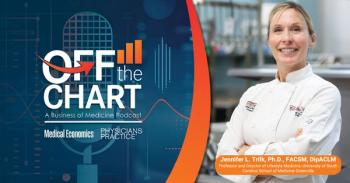
MOC and Me: Tales of an Internal Medicine Physician
So the ABIM admits they got it wrong when it comes to maintenance of certification. Great, but what about my experiences over the past decade?
As a lifetime holder of an internal medicine certificate (certified in 1974, recertified in 1980 -before it became mandatory and onerous), I left the path of safety when I decided to take the American Board of Internal Medicine's (ABIM's) offer to certify in geriatrics based on years of experience rather than a fellowship. I passed the exam in 1988, and joined the ranks of those rankled by maintenance of certification (MOC).
Initially, the MOC programs were fairly harmless and consisted of "modules" - self-study programs taken at home. By 2004, the ABIM began adding elements to the "eligibility" to take the exam. The first elements consisted of a practice assessment and a patient survey.
The practice assessment was disease-oriented, consisting of paper chart reviews of 35 patients with a certain disease. I chose diabetes, since I have a fairly large diabetic practice. So I laboriously entered demographic information: A1C, blood pressure, smoking status, lipid levels, foot exams, and eye exams into a data sheet. I quickly discovered that blood pressures weren't ideal, I wasn't performing a foot exam on everyone, and the eye exams were a joke. Patients could have had the exams, but the results were languishing in the ophthalmologists' offices, not in mine. I could recommend that the patient have the exam, but that was about all I could do.
The second part of the assessment was to improve something. I picked foot exams and was able to show by another laborious chart review six months later that I was doing better. The benefit of all this was that my numbers were good enough to get me certified by the National Committee for Quality Assurance (NCQA) as a diabetic provider (plus a $1,500 fee paid). Unfortunately, other than having a certificate to frame, the NCQA certificate turned out to be essentially worthless.
The patient surveys were a joke. I got a big box of surveys and passed them out to patients asking them to call the number or go online. After all were passed out, the number returned was less than the minimum required, so lots of time wasted for nothing.
After the 2009 recertification exam, there were ominous rumblings from ABIM that more "elements" were coming and that we had better start right away to get them all done in 10 years. So in 2012, I started a practice assessment, an incredibly time-consuming, completely in-depth look at all facets of my practice. It was so lengthy and involved I have completely blocked it out of my memory. I completed it for 20 points.
I did another diabetes assessment in 2013 for 40 points; .worked on blood pressure control on that one.
Then the bombshell: ABIM re-invented itself in 2014 and suddenly by 2017 I had to complete a MOC activity, and by 2018, I had to do another practice assessment as well as a "patient voice activity," whatever that is. This is despite the total of 457points from all the above activities plus Medical Knowledge Self-Assessment Programs from the American College of Physicians I have accrued since my last certifying exam in 2009. (Required points to take exam: 100).
Is it any wonder that the MOC program ranks below ISIS in physician's minds?
So now, ABIM admits they
My motto has always been: "Self-correction is the mark of a true professional." Sure, there are bad apples in every barrel, but the average physician is on the line every day to make the correct diagnosis and do the right thing in the face of chronic uncertainty. Those who cannot keep up, or take the pressure of practice eventually burn out, retire early, or could wind up being employed by one of these MOC boards.
Georgia L. Newman, MD,is an internist and geriatrician at Oberlin Internal Medicine Associates in Oberlin, Ohio. A self-described medicine "junkie," Newman has practiced for 40 years and is also a member of the Physicians Practice Physician Advisory Board.
Newsletter
Optimize your practice with the Physicians Practice newsletter, offering management pearls, leadership tips, and business strategies tailored for practice administrators and physicians of any specialty.








